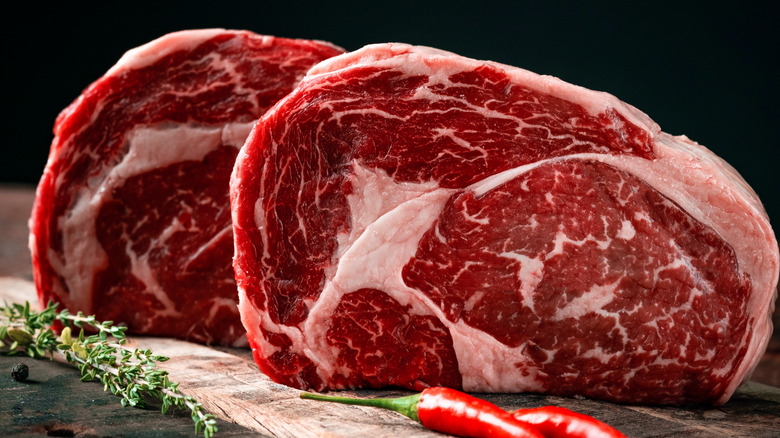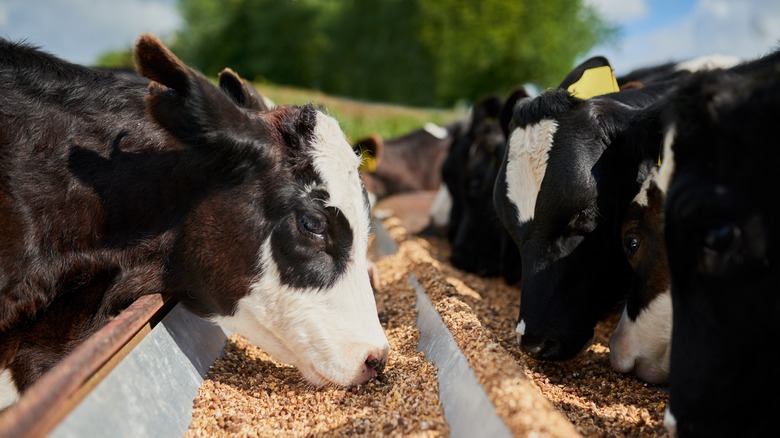The Unsettling Connection Between Meat And Microplastic
Microplastics, pieces of plastic smaller than the eye can see, have infected every essential element of this world — from the deepest depths of the ocean to the air we breathe. In March of 2021, researchers at the Vrije Universiteit Amsterdam (VUA) reported that, for the very first time, microplastics were found in the blood of humans (via The Guardian). The finding came as no surprise, especially considering that, as humans on Earth, we're not only breathing in microplastics but consuming them through the food we eat.
With the vast amount of plastics polluting the oceans, It's general knowledge that most fish and seafood contain microplastics. But, only recently has research been conducted to measure the microplastics found within other food supply systems. In July 2022, the same VUA researchers that detected plastics in human blood ran the same blood tests on both pigs and cows. Of the 12 cows and 12 pigs that were investigated, Agriland reported that each animal had at least three different types of plastics in their bloodstream. The plastic was traced back to the farm-animal feed pellets and then carried on to milk and packaged meat products.
You are what you eat
In the study from the VUA, all samples of the animals' feed pellets, as well as shredded feed, contained plastic. Maria Westerbos, a representative from the foundation that commissioned the research, the Plastic Soup Foundation, told The Guardian in a statement, "With microplastics present in livestock feed, it is not surprising that a clear majority of the meat and dairy products tested contained microplastics." Of the product samples that were tested, 72% of milk products and 75% of beef and pork products contained trace amounts of at least one type of plastic.
While the study doesn't cite any conclusive health risks related to their findings, some researchers are concerned. Inside labs, microplastics have been found to lodge inside organs and cause damage to human cells. However, larger samples are needed to further analyze how risky consuming these products is. Until plastics are completely removed from animal feed, there's no way to completely avoid them in your food. So until alternatives like insect feed or fresh feed become the norm, Aim Plastic Free recommends shopping locally and avoiding meat packaged inside of plastic or styrofoam containers.

